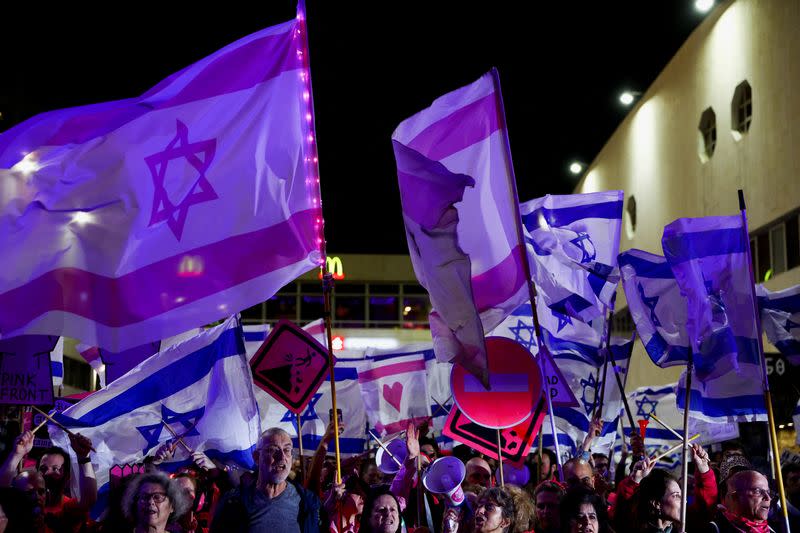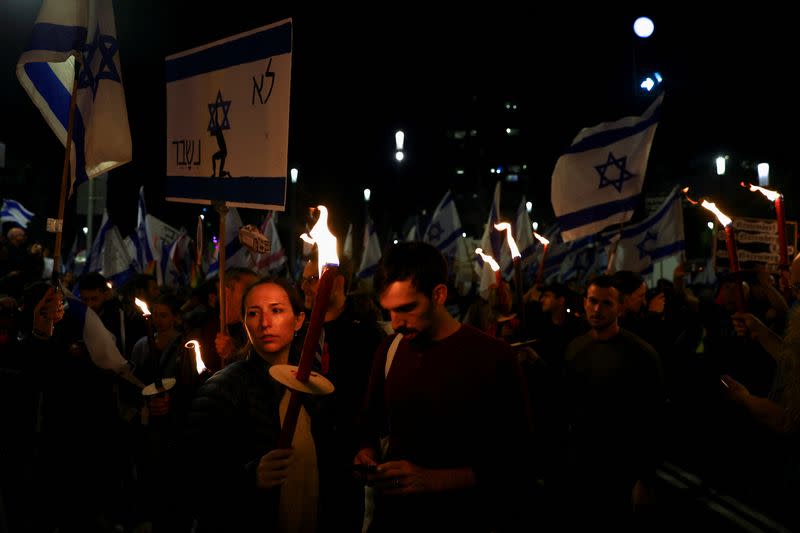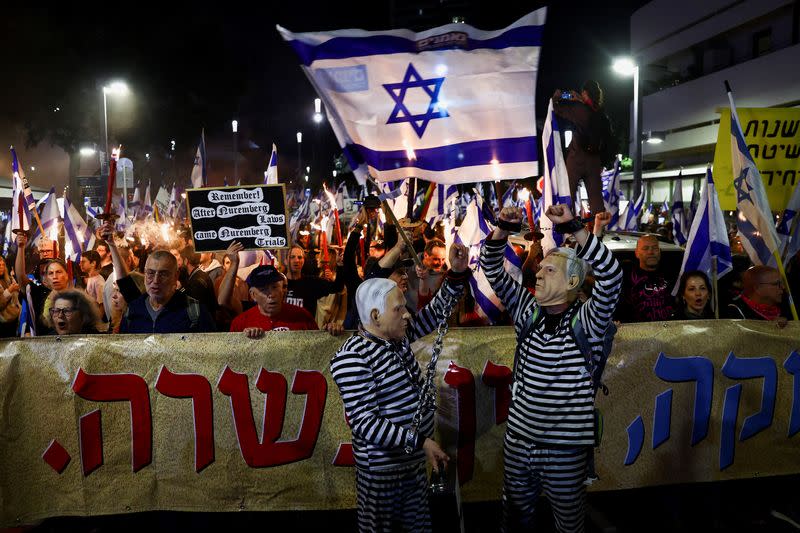Israelis protest against planned judicial overhaul for 11th week
TEL AVIV (Reuters) -Israelis packed city streets on Saturday in nationwide demonstrations now in their 11th week against plans by the hard-right government to curb the Supreme Court's powers, which critics see as a threat to judicial independence.
Prime Minister Benjamin Netanyahu, who says his aim is to balance out branches of government, wields a parliamentary majority along with his religious-nationalist coalition allies, but his planned judicial overhaul has sparked concern at home and abroad.
As the changes head toward ratification, the protests have escalated, affecting the economy - the shekel has slipped - and extending to a threat by some military reservists not to heed call-up orders.
President Isaac Herzog has appealed for the overhaul to be postponed and presented an alternative plan to the changes on Wednesday which was swiftly rejected by the prime minister.
"I came with my friends here to Tel Aviv, to demonstrate against what is called reforms," Ronen Shaike, 47, told Reuters at a demonstration in the city, saying he wanted to defend the country's democracy, which he accused the government of seeking to destroy.
Netanyahu, who returned to office for a sixth term in late December, has said the demonstrations are aimed at toppling him. He is on trial in three corruption cases and denies all wrongdoing.
"I'm here to demonstrate with the people of Israel, against the revolution, against the changing of our state," said Dalia Yosef, 72, also at the Tel Aviv demonstration.
Earlier on Saturday, protesters demonstrated at a central village where far-right National Security Minister Itamar Ben-Gvir was spending his weekend.
"Protest against me as much as you want," Ben Gvir said on Twitter. "I will fight for your right to protest. But why gather outside the windows of the synagogue with loudspeakers, honk, scream and make people violate Shabbat?"
Protests even spread to the occupied West Bank, where Israeli settlements have long been considered a political stronghold for Netanyahu's right-wing coalition partners. More than 50 mostly modern-Orthodox Jewish protesters chanted traditional Jewish songs holding blue and white flags at a central junction in the West Bank settlement of Efrat.
"What they are trying to do is monopolize, to have all the power in their hands," Shmuel Wygoda, a college professor told Reuters in Efrat. "Once you have all the power in the hands of one side, it is a change, which we know from history, from totalitarian regimes, that all the power is unfortunately used against the people."
(Reporting by Emily Rose, Rami Avichay, Akiva Gaffin Editing by Frances Kerry, Emelia Sithole-Matarise, Peter Graff)






